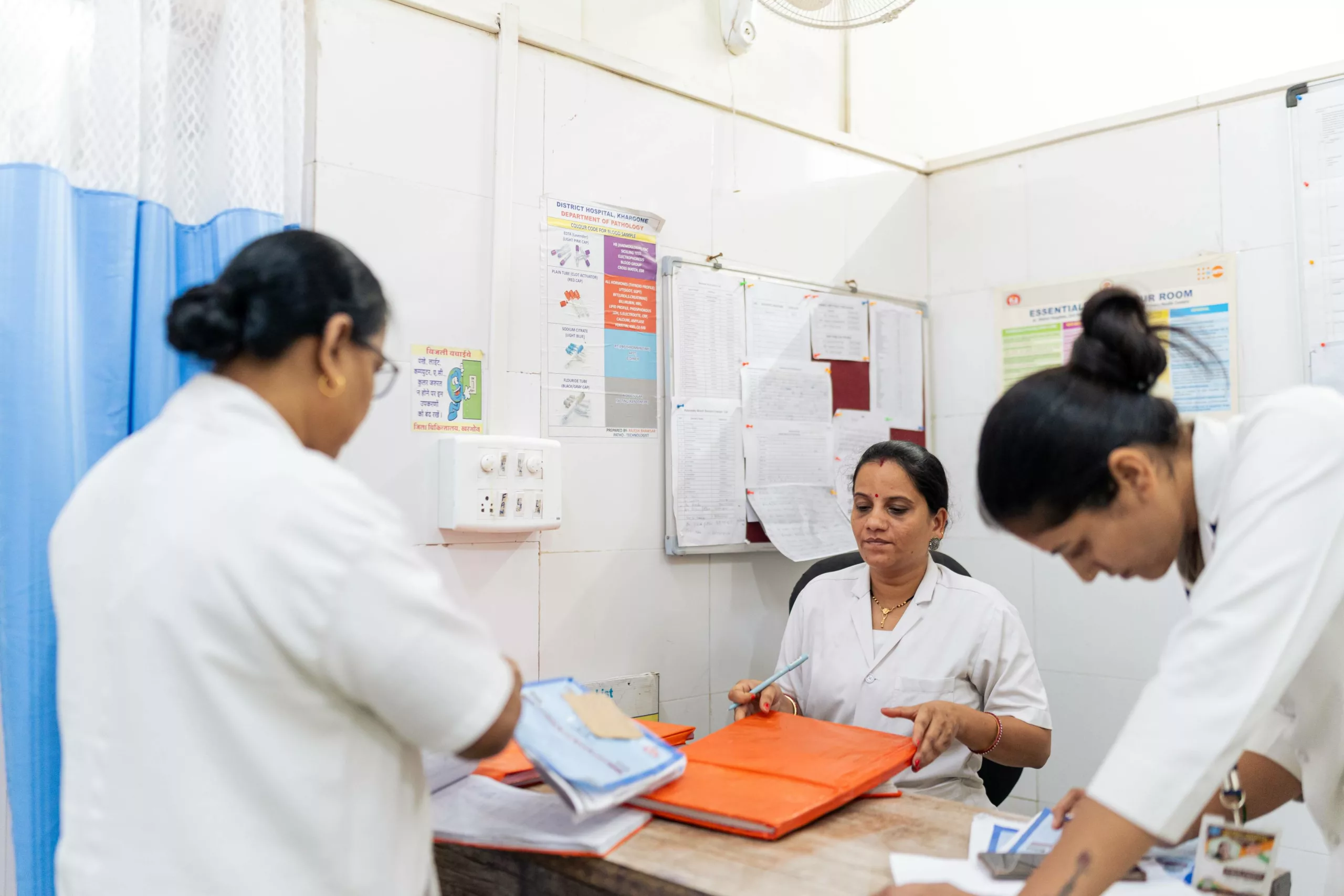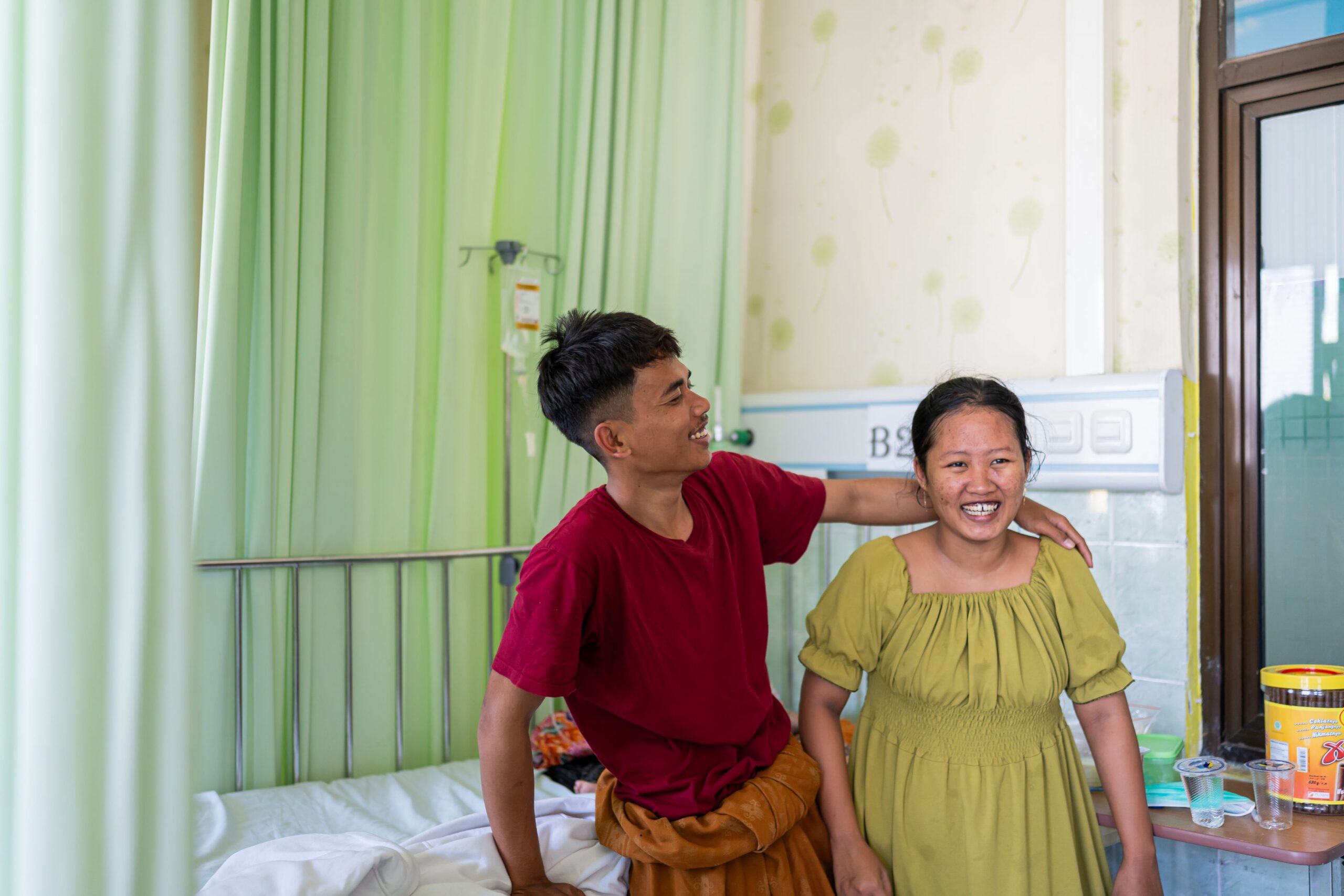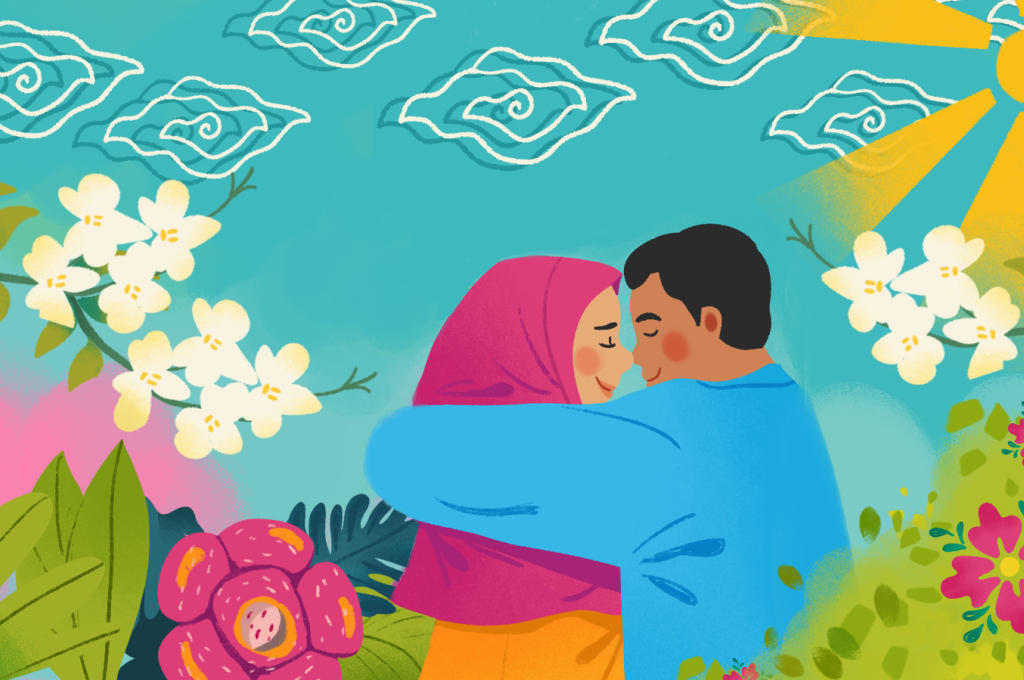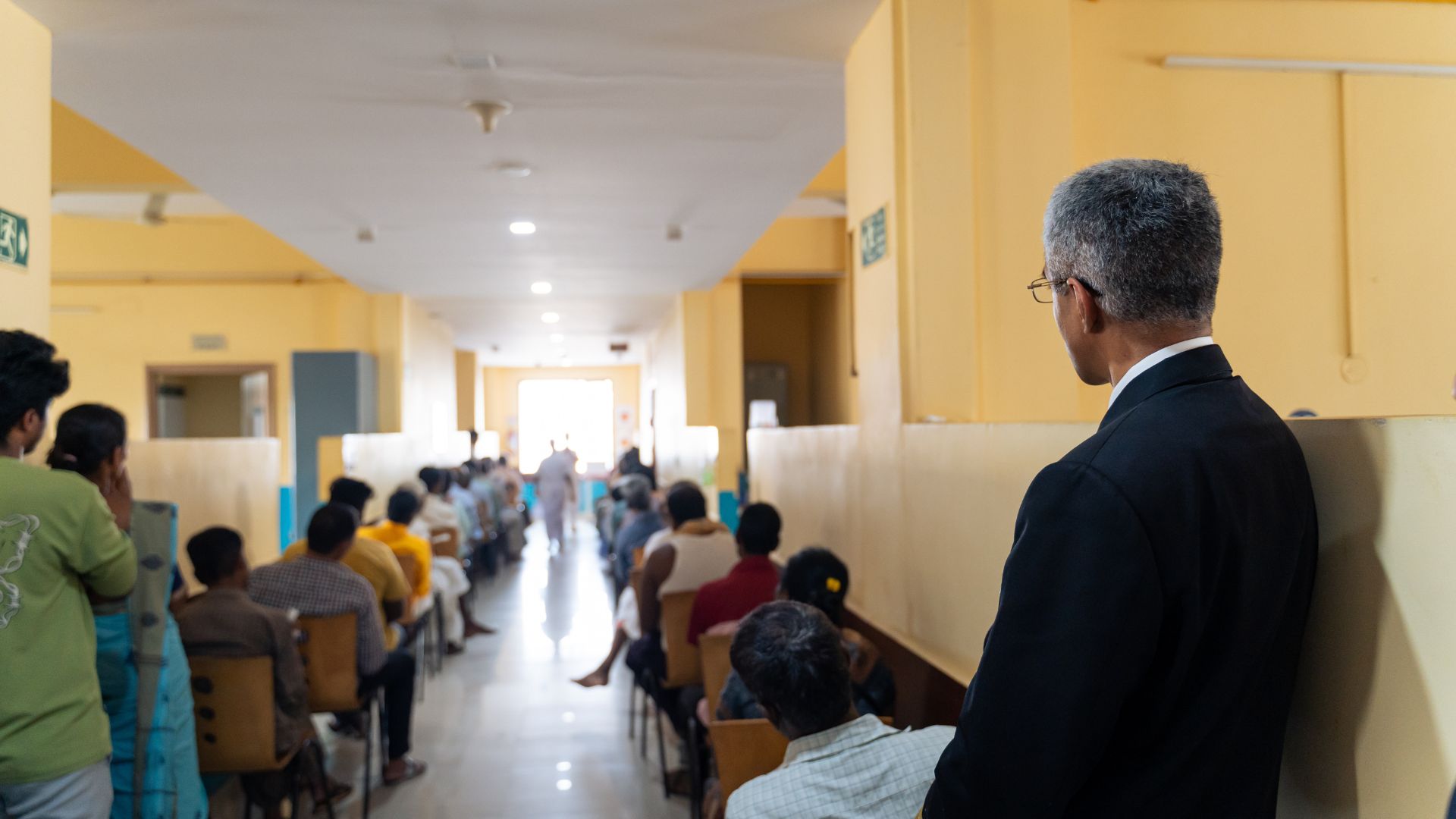
Witnessing care, celebrating community
The U.S. Surgeon General visits the Care Companion Program.
As the Co-Chair of the World Health Organization’s Commission on Social Connection, U.S. Surgeon General, Dr. Vivek Murthy, is traveling the world to explore how we can unite to support well-being and social connection globally.
After visiting Japan, Dr. Murthy came to India and visited Delhi, Mumbai, and Bangalore to commemorate World Mental Health Day. His focus was on understanding how the country is experiencing and responding to the global mental health and loneliness crisis.
We had the honor of hosting Dr. Murthy at the Sri Jayadeva Institute of Cardiovascular Sciences and Research in Bangalore, Karnataka. There, he learned about Noora Health’s work, observed a Care Companion Program session, and spent time with patients, caregivers, nurses, doctors, and hospital leadership.
Check out a few heartwarming moments from the visit below.
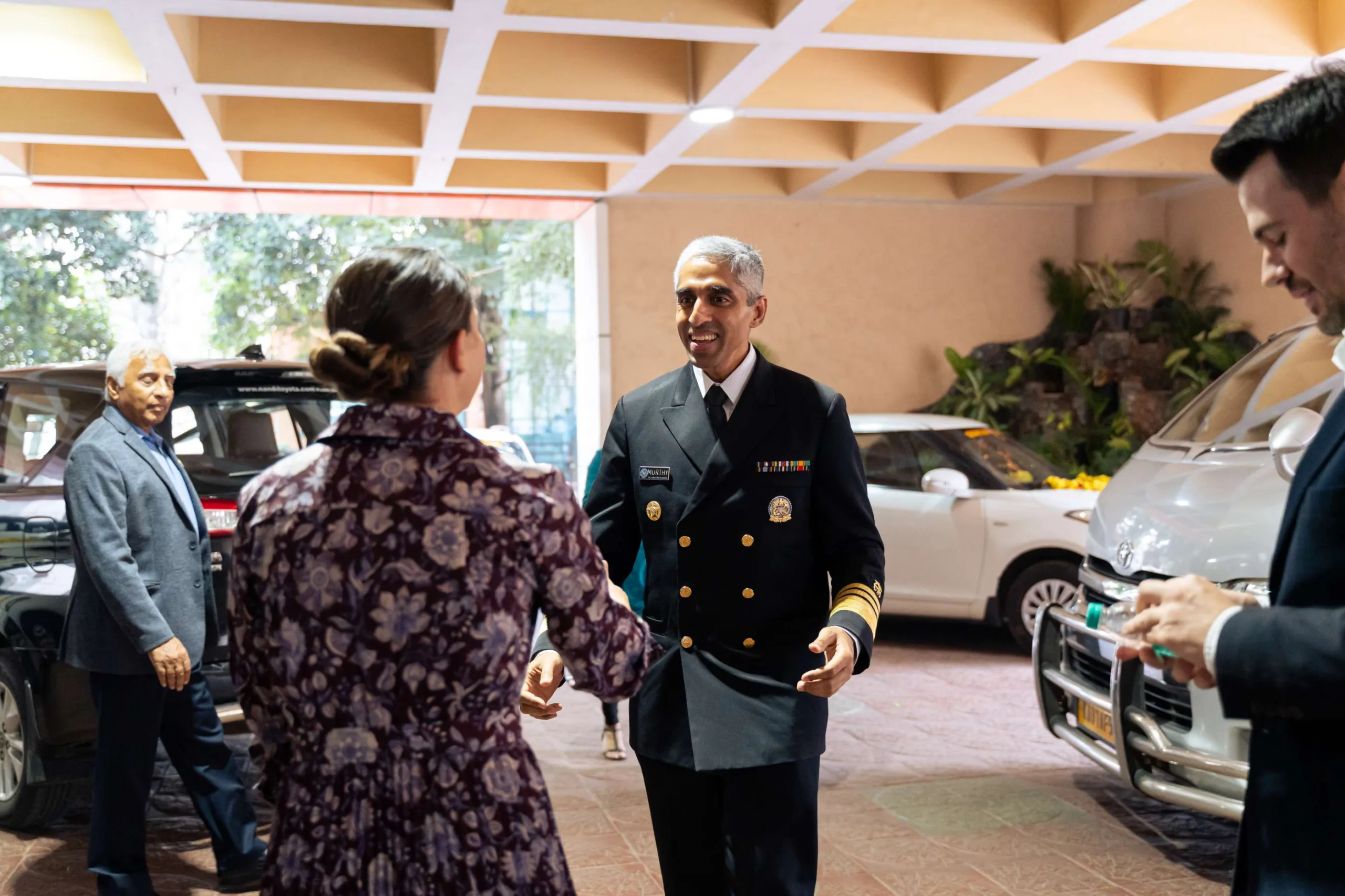
The day began with a sense of anticipation as Dr. Murthy arrived and was greeted by the hospital director and our team. Introductions were made and smiles were exchanged as everyone settled in, setting the tone for a meaningful day ahead.
As we entered the hospital, Dr. Murthy reminisced about how special it was for him to be back in India, especially at a hospital in Bangalore, “I spent many years visiting India, initially to see family, and then later when I was working here. In fact, it was here in Bangalore that I got my start in public health. I was initially working on HIV and then later building programs in Sringeri (a town in the state of Karnataka), to train young women from villages to be community health workers. This experience fundamentally changed the direction of my life and took me towards public health.”
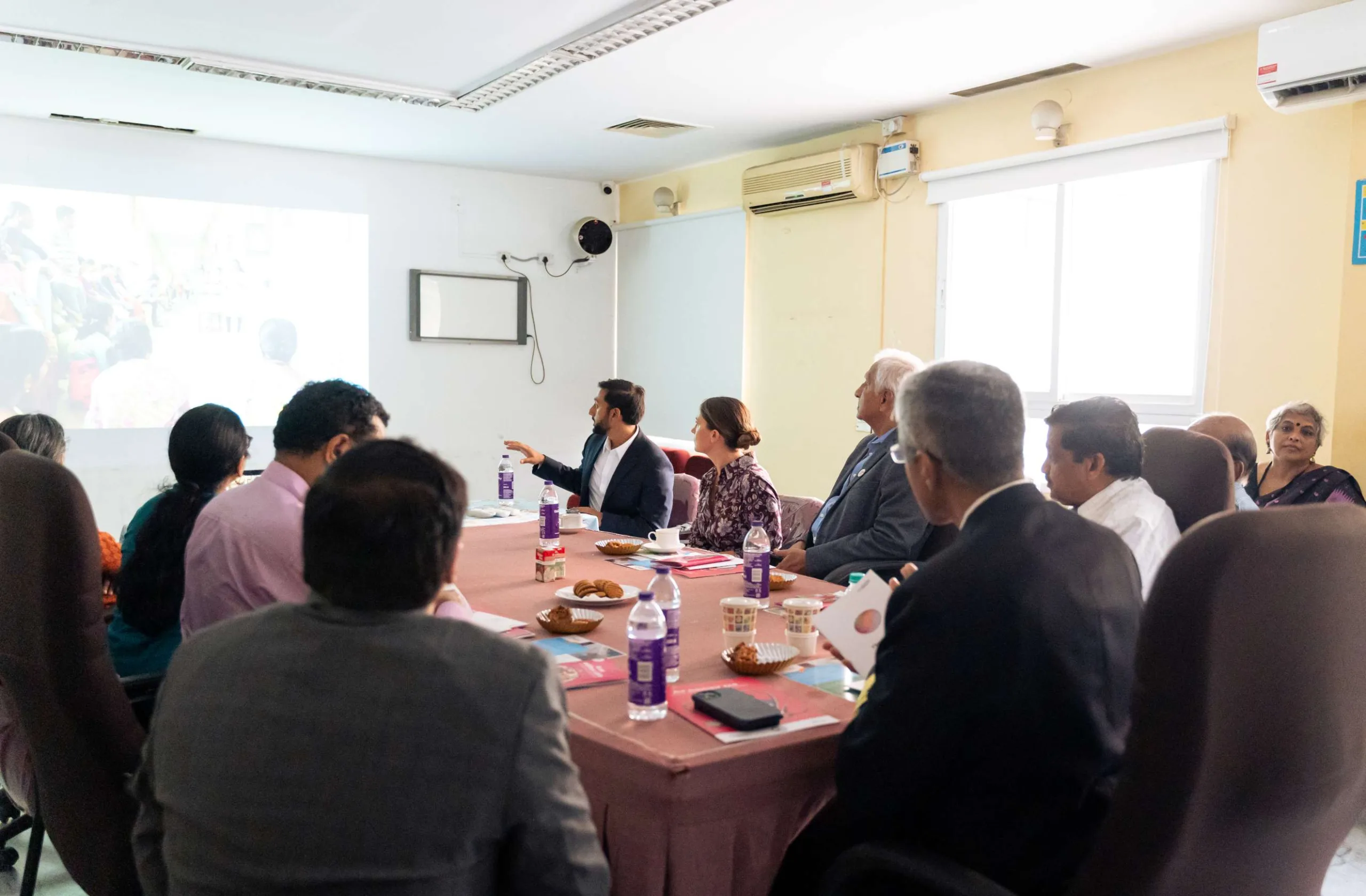
An unexpected yet heartwarming moment of the day was discovering that Dr. Murthy’s family had joined him on the visit. Originally from Karnataka, they were excited to be back home.
Families — both of origin and of choice — are the essence of everything we do at Noora Health. Having Dr. Murthy’s family there with us made the conversation about supporting family caregivers in health systems even more meaningful.
As fellow doctors, Dr. Murthy and family were curious to learn more about our journey to rapid scale, our experience working with government partners across different countries, and some of our key learnings and challenges. Dr. Murthy commended the impact we’ve had, remarking on how quickly we’ve grown in such a short time.
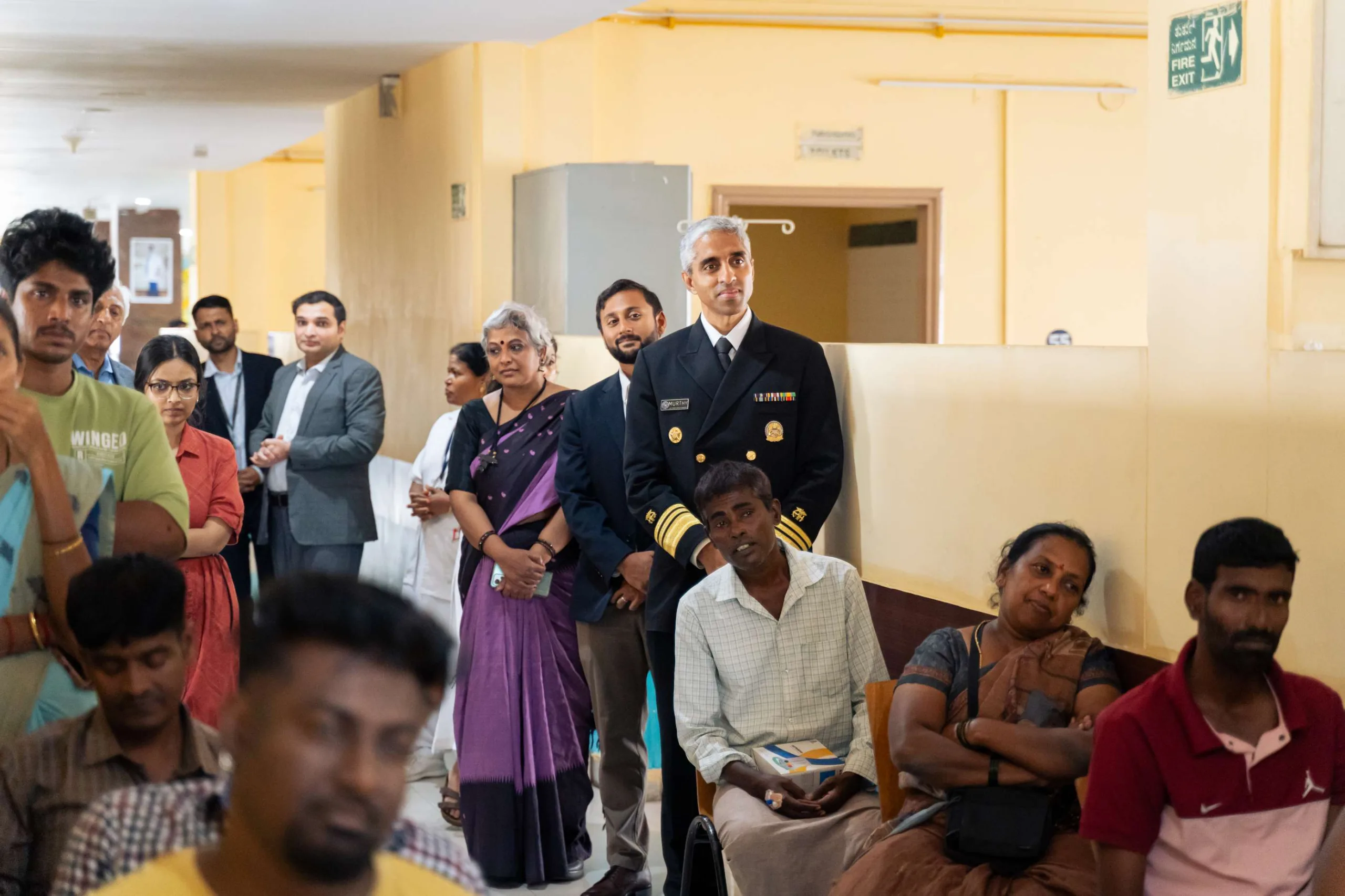
Next, it was time for the Care Companion Program (CCP) session, where cardiac patients and caregivers were guided through what to expect pre-surgery and how to take care post-surgery.
Getting heart surgery and navigating the proper after-care is filled with moments of stress, anxiety, and uncertainty. With compassion and empathy, the nurse conducting the session explained each step of the surgery and recovery process, offering reassurance and answering questions to help ease the patient’s concerns.
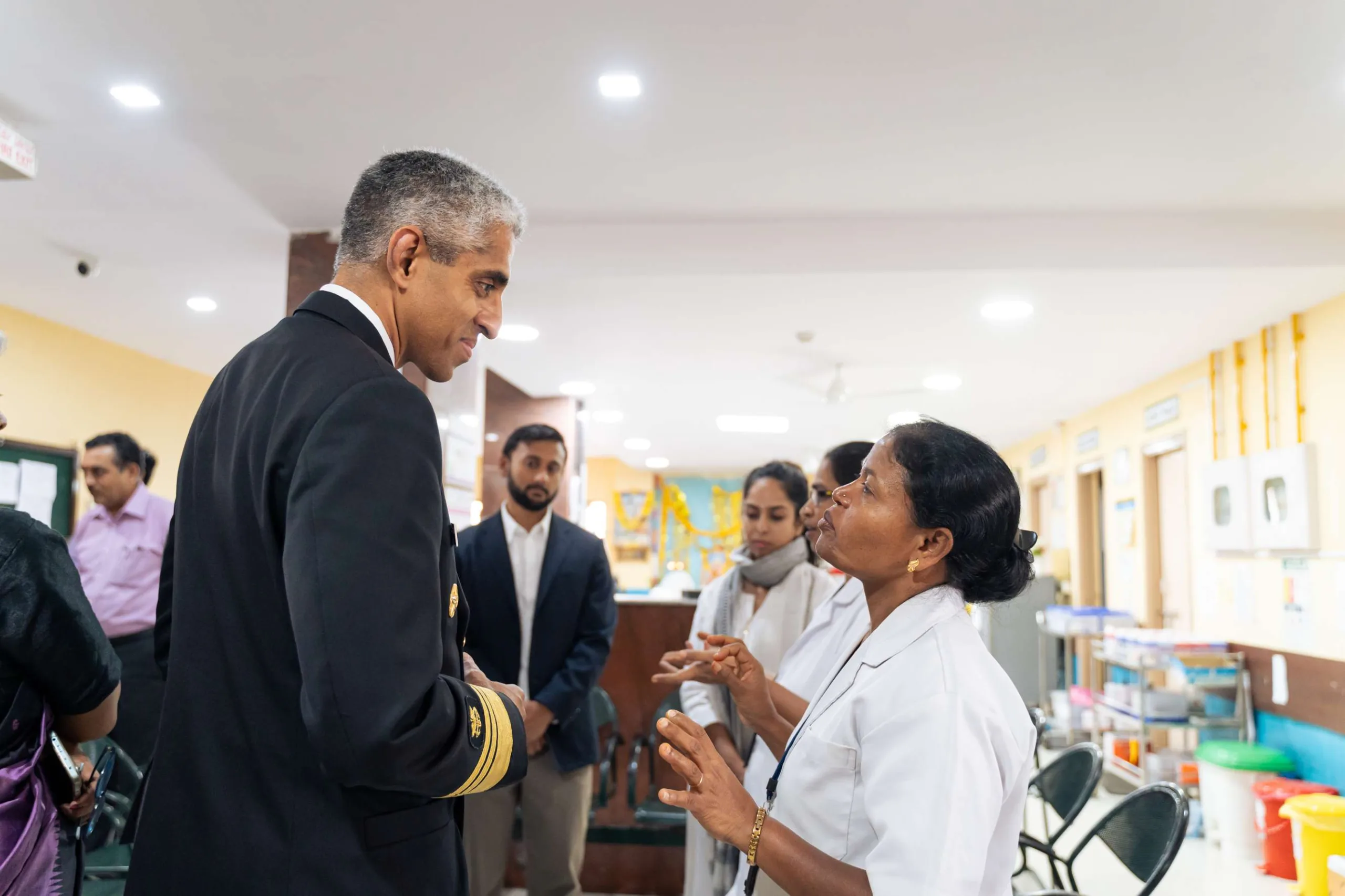
As the session concluded, Dr. Murthy appreciated the nurse’s thorough approach, and how clearly she both explained the importance of using a spirometer post-surgery to prevent fluid buildup in the lungs, and took the time to demonstrate its proper use.
He also took a moment to speak to the nursing team, eager to hear about their experiences training patients and caregivers. The nurses spoke about how the CCP had significantly enhanced patients’ understanding of the surgical process and the importance of following post-operative care protocols. They emphasized how the program empowered both patients and caregivers with all the knowledge needed to make informed decisions, easing their anxieties and fostering greater confidence throughout recovery.
Dr. Murthy listened attentively, recognizing the vital role nurses play not just in treatment, but in bridging the gap between complex medical procedures and patient care and comfort.
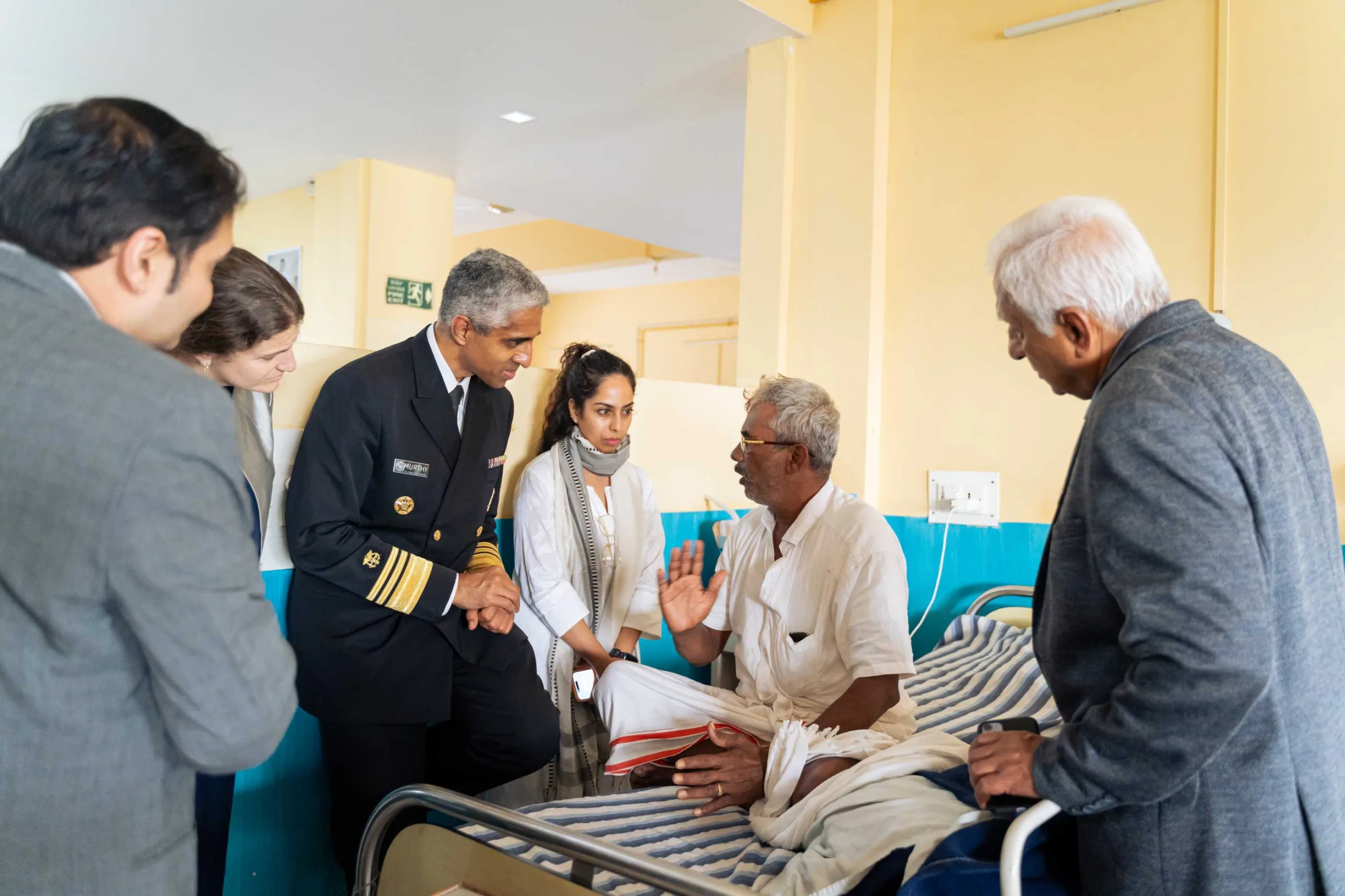
As Dr. Murthy made his way through the ward, pausing by a few patient’s bedsides, asking them where they were from, how long they’d been at the hospital, and what they thought of the session — all in their native Kannada. He was eager to hear about the new things they had learned and how they were feeling.
When talking to a patient (pictured above) Dr. Murthy showed a special interest in understanding his worries, and who would care for him after he returned home. “My whole family will take care of me, I’m not worried. They’re not here right now since it’s a festival today, but my son will come back tomorrow and be here till my surgery is done, to take me home,” he shared confidently. His words carried a sense of assurance and deep trust in his family’s love and support.
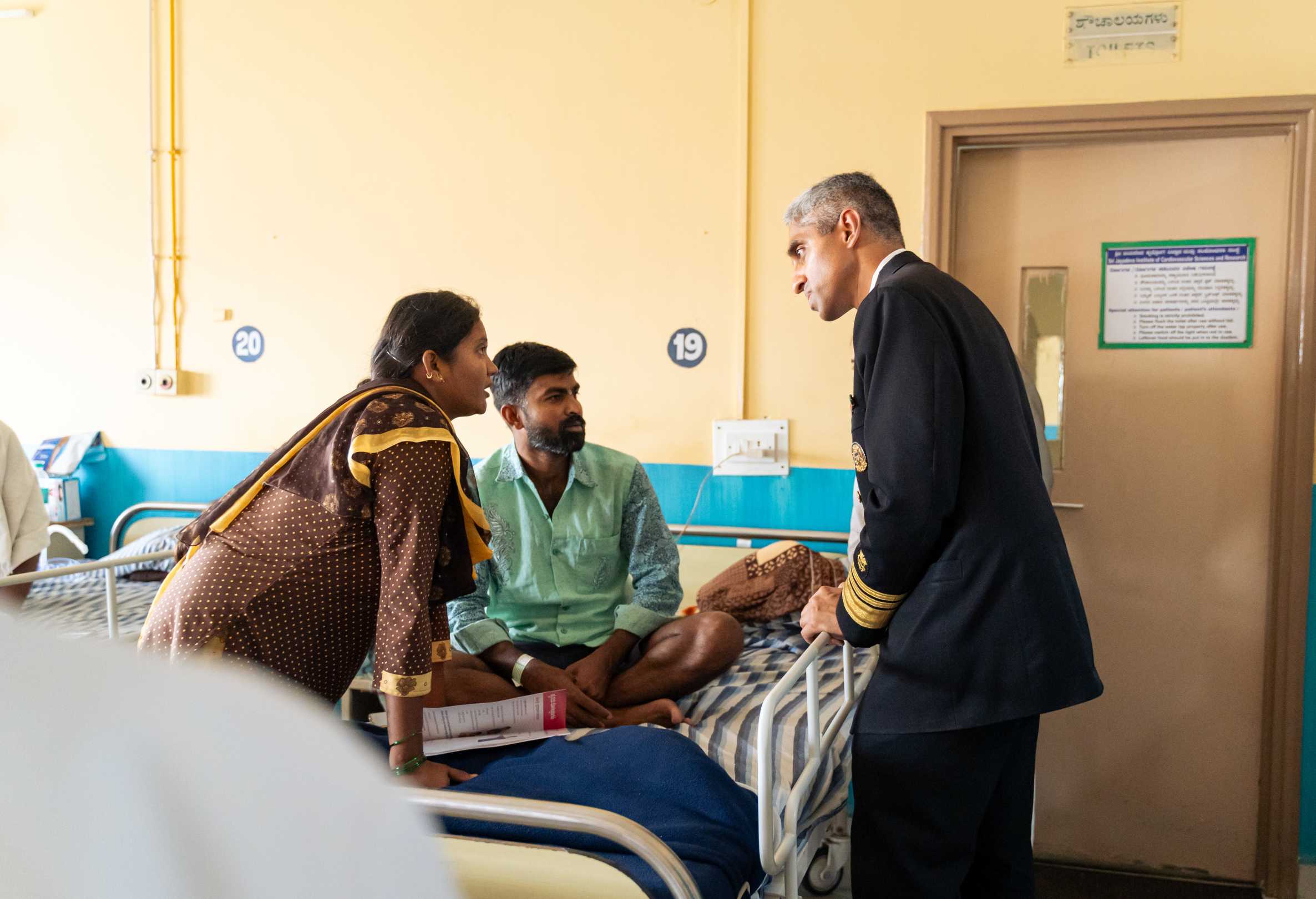
“We’ll go through the surgery now, but I’m afraid that he might face the same problem again in 10-15 years. Is there a chance that could happen?” asked a wife, her voice laced with concern as she waited by her husband’s bedside. Dr. Murthy had asked her what she was most anxious about post-surgery, and her worries came spilling out.
She went on to share how they had discovered the hole in her husband’s heart purely by chance. While being treated for dengue in another hospital, he began having trouble breathing, which led to the unexpected diagnosis. Referred to Jayadeva for specialized care, they had spent the last 10 days here, anxiously awaiting the surgery that would bring them some peace.
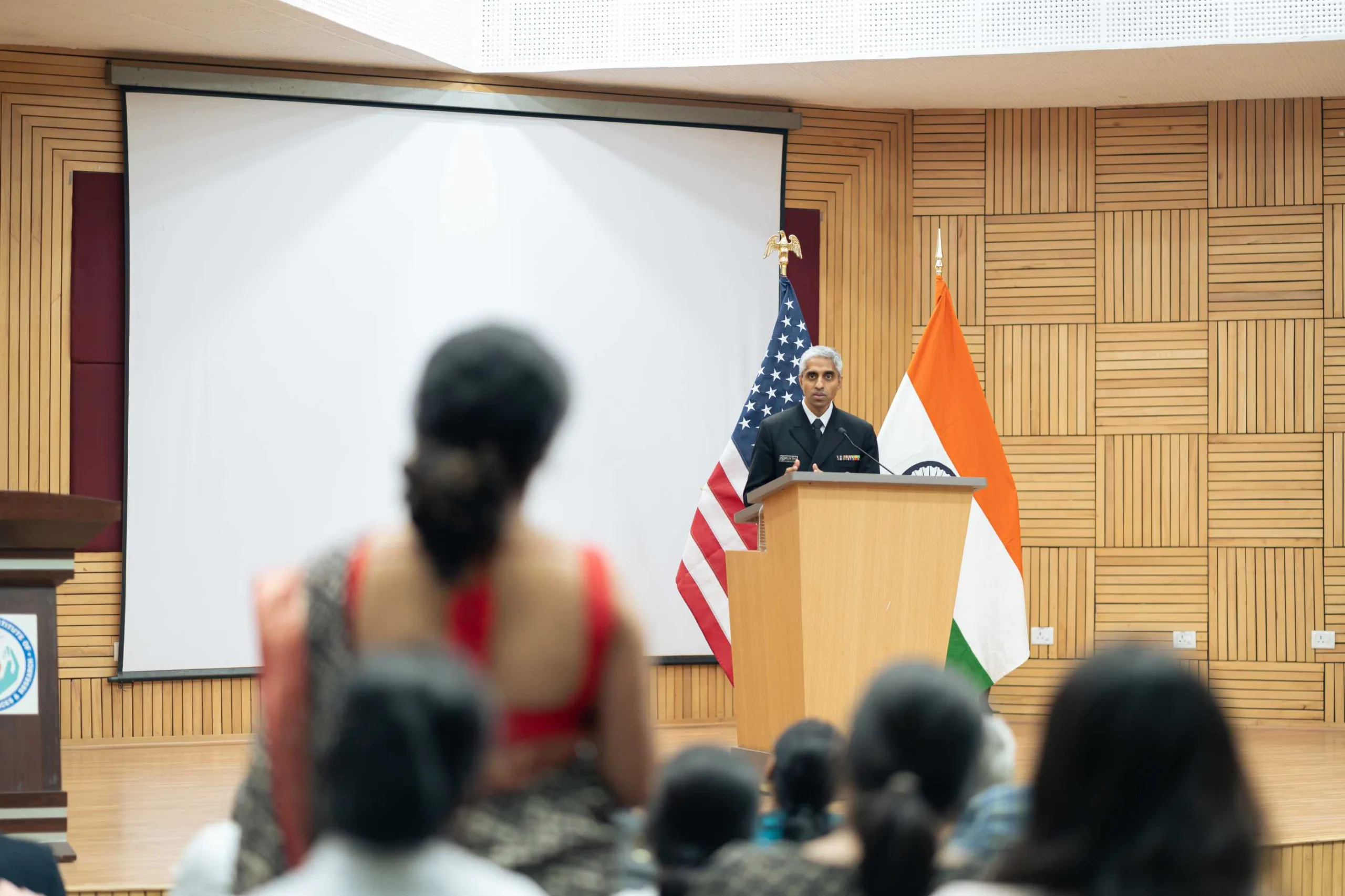
“It’s finally time for us to admit that mental health is health. It’s no less important than physical health, and it ultimately influences our physical health as well. It’s time for us to prioritize access to care, which continues to be a global challenge. And it’s also time for us to focus on prevention, on getting at the root causes of what’s driving this broader mental health challenge. In medicine, we focus a lot on treatment and often not enough on prevention. This is a time where we can’t afford to do that; we have to do both.
Now I know that there’s a lot of promising work underway and that’s what gives me hope; that this is a challenge we can address. The great work we have seen today that Jayadeva and Noora Health are doing together is one example of how we can strengthen connection, family, and ultimately help improve people’s health,” Dr. Murthy concluded on an inspiring note at the post-visit press conference.
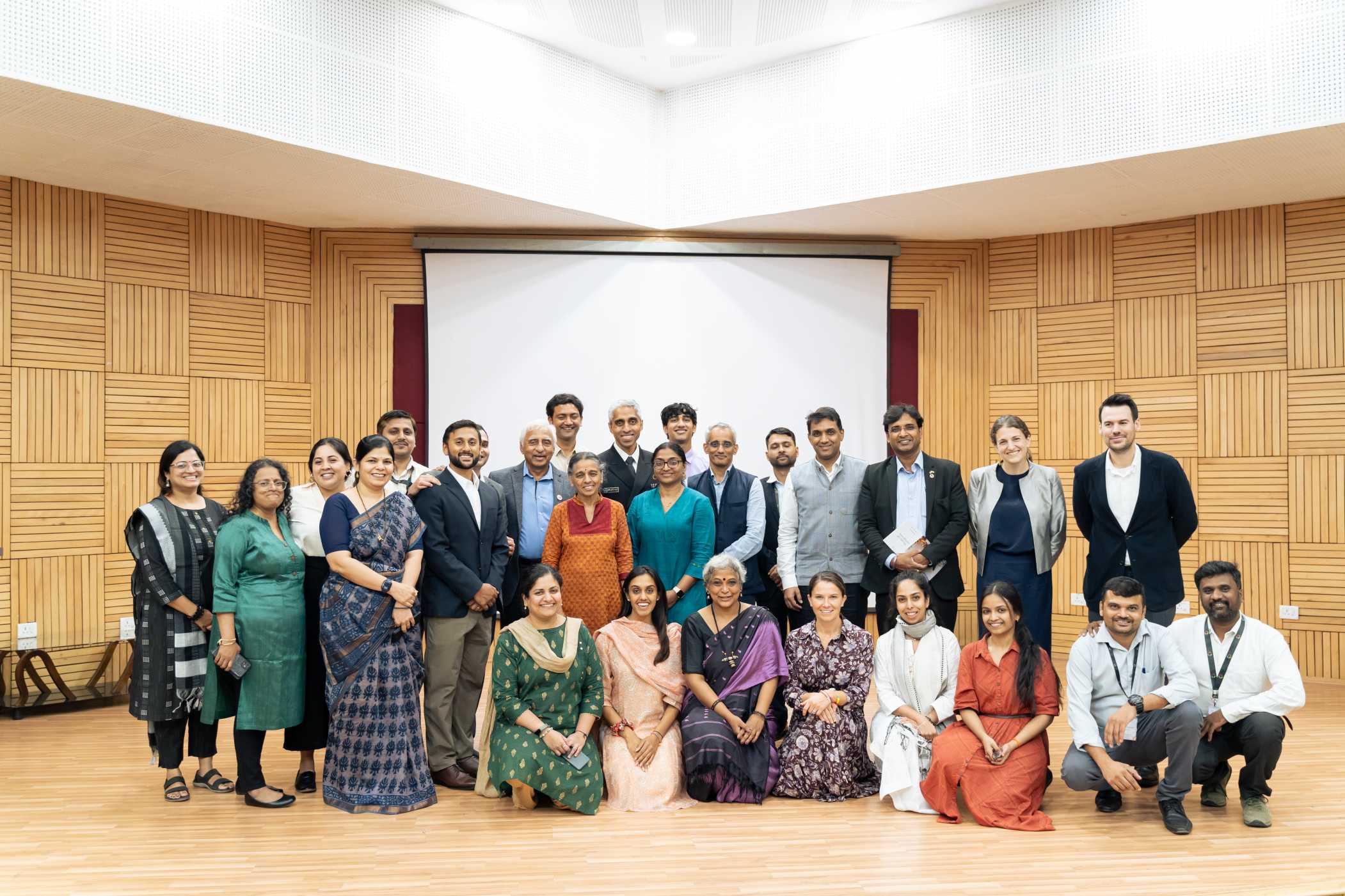
As we said goodbye to Dr. Murthy, in true desi family style, the farewell turned into an extended conversation at the door, with everyone chatting long after the initial goodbyes.
“We know that being a patient, especially with a serious illness, and also caring for a loved one can be a lonely journey. But it doesn’t have to be. At Noora Health, we address those tense, often isolated moments with human connection between families going through similar experiences as well as healthcare workers. Health workers tell us the CCP sessions become one of the most meaningful interactions in their day. We are inspired by Dr. Murthy bringing more attention to the challenge of social isolation, and are truly honored to have shared a small part of our mission with him and his family today,” shared Shahed Alam, Co-Founder and Co-CEO at Noora Health.

